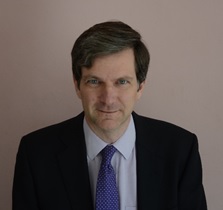TWOJA PRZEGLĄDARKA JEST NIEAKTUALNA.
Wykryliśmy, że używasz nieaktualnej przeglądarki, przez co nasz serwis może dla Ciebie działać niepoprawnie. Zalecamy aktualizację lub przejście na inną przeglądarkę.
Data: 14.06.2022
Zapraszamy na kolejne spotkanie w ramach cyklu Teaching Excellence Seminar, organizowanego przez Centrum Doskonałości Dydaktycznej PWr. We wtorek, 28 czerwca, na platformie Zoom będzie można posłuchać dwójki naukowców z University St. Andrews: prof. Ifora Samuela (School of Physics and Astronomy) - prelekcja „Insights into Teaching at St Andrews” oraz prof. Antje Kohnle (School of Physics and Astronomy) - „Supporting visual and conceptual learning of quantum mechanics”.
28.06.2022, godzinie 9.30, online.
Link do spotkania na ZOOM
Prof. Ifor Samuel z St. Andrews University (School of Physics and Astronomy, University of St Andrews)

Ifor Samuel is Professor of Physics at the University of St Andrews, He received his MA and PhD from the University of Cambridge, working on optical spectroscopy of organic semiconductors. He was a Research Fellow at Christ’s College, Cambridge and also performed postdoctoral work at CNET-France Telecom in Paris, before setting up his own research group on light-emitting polymers at the University of Durham. In 2000 he moved to the University of St Andrews where he founded and leads the Organic Semiconductor Centre. His current work concerns the photophysics of organic semiconductor materials and devices including organic light-emitting diodes, solar cells, lasers and their applications, and he has published over 500 journal papers. He has taught at every level from first year to graduate courses, and led the formation of the Scottish Physics Graduate School.
Title: “Insights into Teaching at St Andrews”
This talk will give an introduction to teaching in St Andrews and some reflections on why it is generally successful. It will use examples from the School of Physics and Astronomy, though the insights are likely to be applicable across the sciences and beyond. Key factors are our environment, our students, our staff and our approaching to looking after our students.
Prof. Antje Kohnle (School of Physics and Astronomy, University of St Andrews)

Antje Kohnle is an education-focussed Senior Lecturer at the University of St Andrews. She leads the Quantum Mechanics Visualization Project QuVis consisting of research-based interactive simulations (www.st-andrews.ac.uk/physics/quvis). Her research interests include the development of representational competence, student-generated content, the teaching of interpretive and conceptual aspects of quantum mechanics, and optimizing simulations and activities to promote engaged exploration and learning. She is originally a high-energy astrophysicist, and holds a teaching certificate for maths and physics for German secondary school. She has contributed to instructor workshops in the UK, US and Germany.
Title: “Supporting visual and conceptual learning of quantum mechanics”
Analyzing, constructing, and translating between graphical, pictorial, and mathematical representations of physics ideas and reasoning flexibly through them (“representational competence") is a key characteristic of expertise, but challenging for learners to develop. The first part of this talk will focus on the role of QuVis interactive computer simulations with appropriate scaffolding in supporting visual learning and the development of representational competence in quantum mechanics. We have been developing combined simulation-tutorials, whereby students first work on problems independently, constructing representations they will later see in the simulation, followed by further problems with simulation support. We describe how learning theories have shaped the structure and tasks of these activities. The second part of this talk will focus on student-generated content using Peerwise (https://peerwise.cs.auckland.ac.nz/), an online peer learning community in which students can author, answer, and give feedback on each other’s multiple-choice questions. Measures of student engagement and factors in the implementation that may have impacted engagement will be discussed.